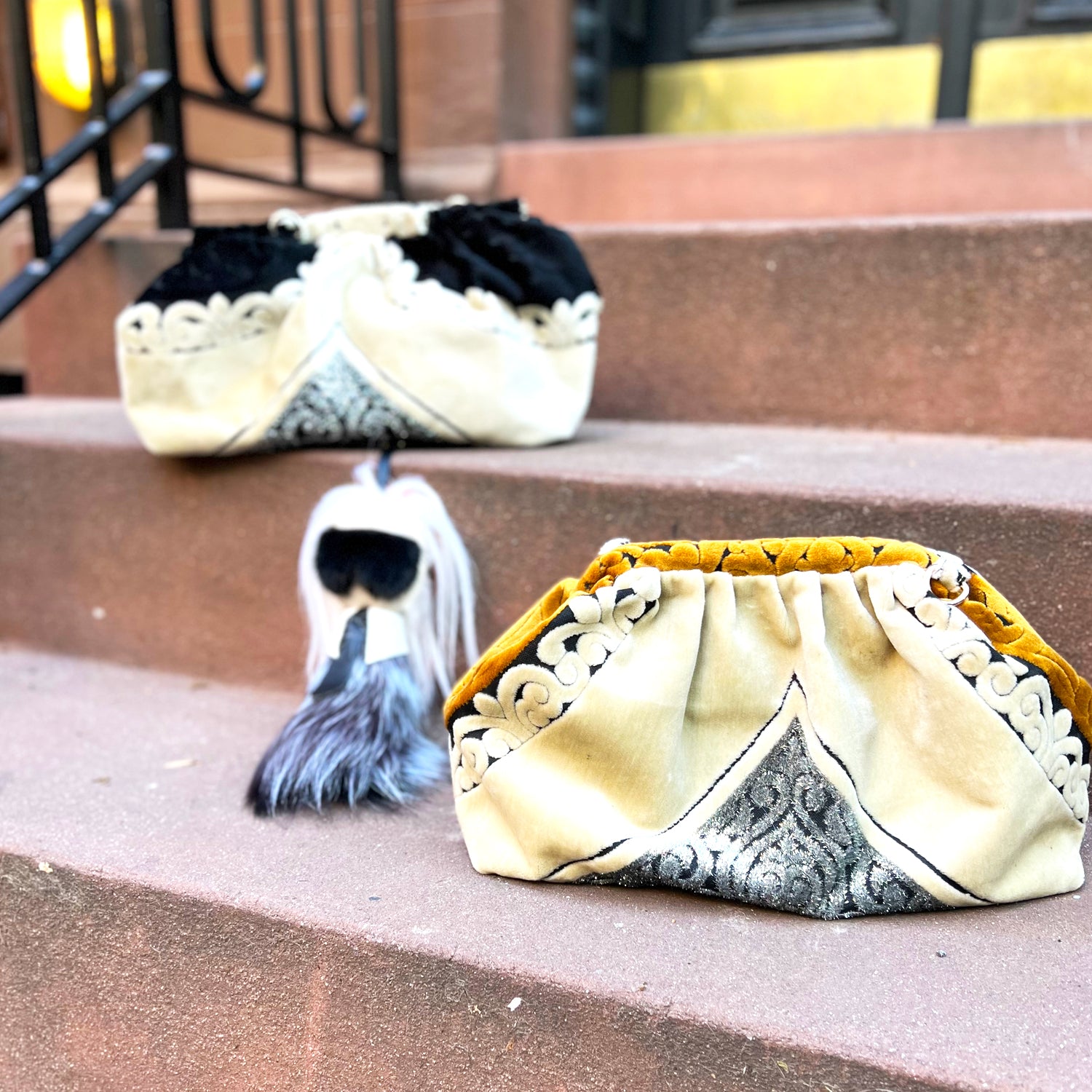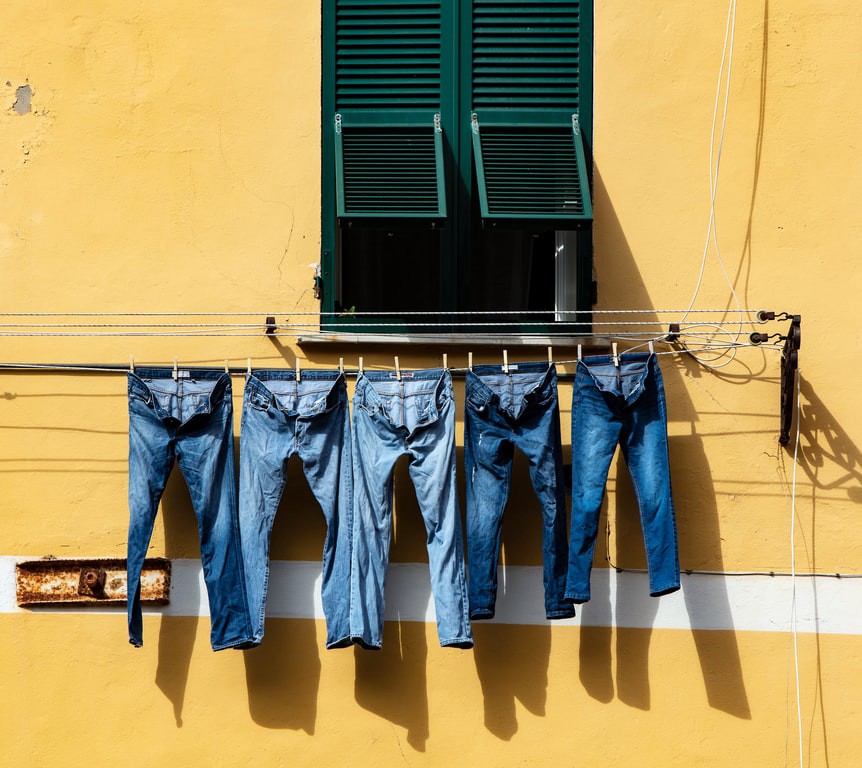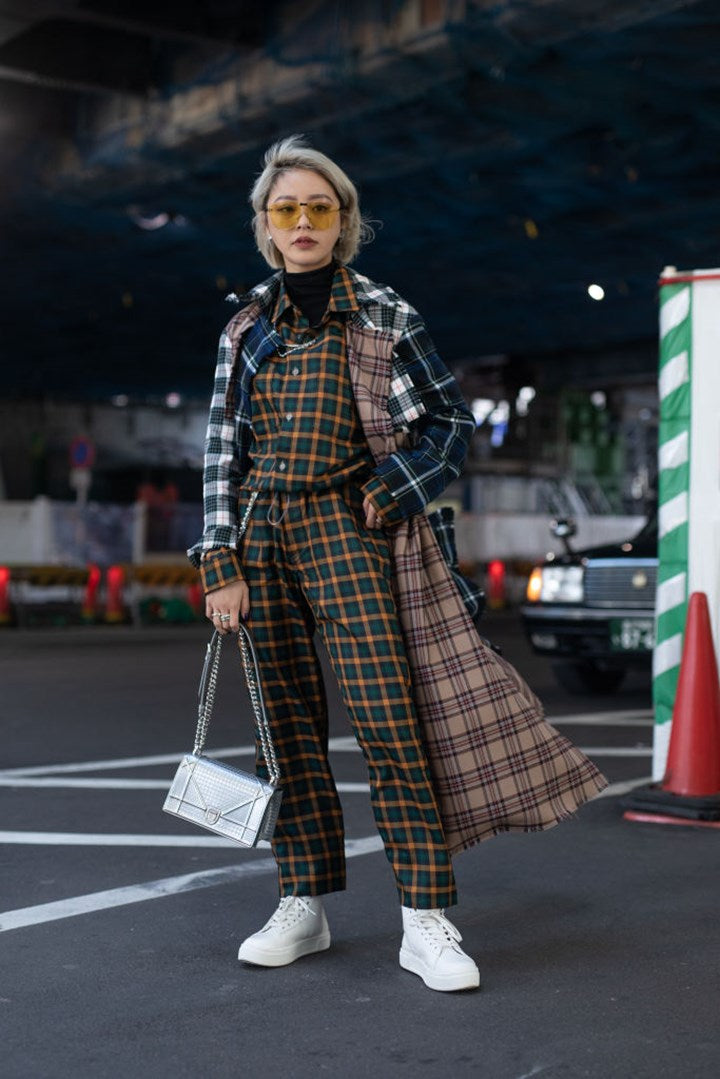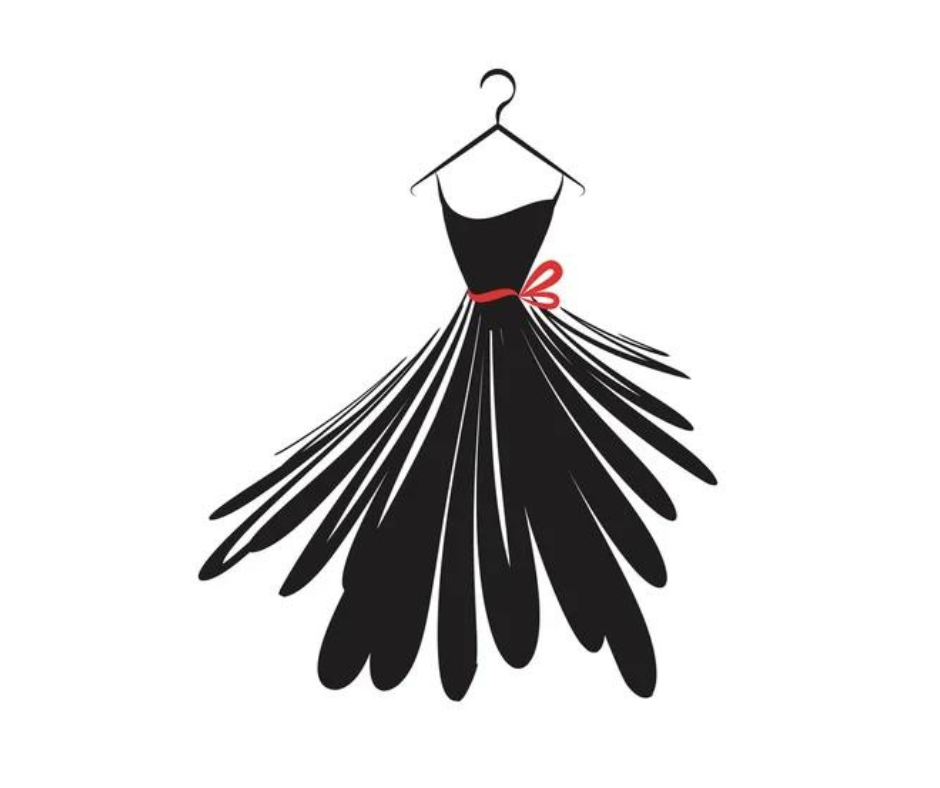
One of the most timeless pieces in the American wardrobe, denim is
also the dirtiest. No, we’re not saying, “wash your jeans,” but this American classic is made from cotton, one of the most
unsustainable fabrics in our lives.
Made from a manufacturing process laden with toxic chemicals, water pollution, and fossil fuel emissions, when it comes to fashion’s dirtiest little secret, the problem is in the jeans.
Denim’s Dark Side
Denim is made from cotton and cotton crops use a lot of water, pesticides, and insecticides. Additionally, some cotton comes from overseas, where many fashion denim is produced, which only adds to its carbon footprint.
To make matters worse, cotton must be transformed into yarn before it can be used o produce denim. The yarn is then dyed with indigo or synthetic indigo, which must be rinsed with - yes, more water. Once assembled, the fabric goes through several washes or dying processes such as sandblasting or bleaching until the desired look is achieved.
To make matters even worse than that, each step in the supply chain could take place in a different city, country, or corner of the globe, requiring shipping, travel, and gas emissions.
This is the dark side of the denim industry.
And we’re hanging it out to dry.

The Jean-eology of Conventional Denim
Denim is made from cotton, which in addition to being one of the world’s most profitable crops, also happens to be one of the thirstiest. Denim production impacts the environment in many ways including biodiversity, water overconsumption, pollution, and waste.
Soil Biodiversity
Conventionally grown cotton is one of the planet’s most environmentally demanding crops. In fact, it accounts for one-sixth of all global pesticide use. This contaminates the soil and harms its biodiversity.
As the climate continues to change, soil biodiversity, which reduces the impact of extreme drought and floods, is adversely impacted.
Water Overconsumption
Each year the fashion industry uses over 93 million cubic meters of water, enough to supply the drinking water for five million people. One of the least sustainable items of clothing made in the world today, it takes almost 1800 gallons of water to make just one pair of jeans. That’s almost six years’ worth of drinking water for one person.

Water Pollution
And with textile dying being the second-largest source of water pollution on the planet, a whopping 1/5 of all water pollution from industrial sources comes from the fashion industry. To make matters worse, some companies use synthetic indigo dyes in the manufacturing process which uses toxic chemicals like formaldehyde in the dying process.
Xintang, China, known as the denim capital of the world, produces 300 million denim products every year. Despite local government intervention, factories continue to dispose of wastewater from the washing process directly into the local rivers. The problem has gotten so out of control that in the dry season, the rivers adjacent to the farms run blue, contaminating the water supply and killing the marine life that depends on them.
When Greenpeace conducted a study, they found that the levels of heavy metals in these waterways far exceeded environmental standards. Riddled with toxic chemical waste as a result of the fashion industry, the rivers used by locals for daily life suffer from cancer and other health issues.
While it’s easy to brush this off as something happening on the other side of the world, the chemicals persisting in Xintang’s rivers eventually seep into channels and, eventually into our shared oceans, making this a global concern.
Once picked, the cotton used to make a pair of jeans is spun into thread, dyed, and woven into denim which then undergoes a rigorous washing and chemically intensive process, wreaking further havoc on the environment.
That is not to mention the inhumane conditions and unfair labor practices inherent to the conventional denim industry.

L2R Standing Up to Dirty Denim
Responding to the conventionally dirty denim manufacturing process, many zero-waste brands are rallying around the cleaner denim movement.
Making nothing new using innovative ideas
Support brands that have ethics, aligned with your own principles, and ethos. L2R the Label, a zero-waste, eco-centric fashion brand puts sustainability and equity ahead of profit. Committing to sustainability down to the thread by using deadstock, remnants, and discarded denim in their designs, L2R is committed to carbon neutrality, constantly reimagining its role in the climate movement.
Zero-waste production process
At L2R, we have a zero-waste production process. We collect old clothing that would normally end up in a landfill and turn it into new products, lessening the need to source virgin materials, saving time and energy, and keeping our prices at bay.
L2R’s upcycling technology follows the new system of ‘Make - Wear - Remake'. We utilize discarded garments to create new ones, using renewable energy and sustainable solutions in the process. This zero-waste solution is closing the loop on fashion.
Regenerating fibers
The process of regenerating fibers from old recycled denim aids in minimizing the number of raw materials that are used in the linear economy model, therefore reducing the environmental impact than having to produce garments completely from scratch.

Use of deadstock, remnants, and denim scraps
Many fast fashion brands manufacture and stock products by forecasting upcoming trends taken from the runways or social media. Because such predictions can be hit-or-miss, this kind of forecasting leads to tons of deadstock. In addition, these trends come and go, leaving piles and piles of unwanted clothing in landfills.
L2R does not produce any denim made from new fabric or materials. Instead, we use deadstock, tattered and used clothing, and items in disrepair and upcycle them, giving them a second chance at life.

Repurposing remnants into tote bags
While we actively attempt to incorporate every last piece of fabric and fiber into our products, there are always a few remnants remaining. Instead of tossing them, we create bags that our customers can use as shopping or gift bags, keeping our closed-loop commitment constant.
Dirty denim can only survive as long as consumers support it. While it’s cheap, the cost is paid by factory workers and innocent communities in economically disadvantaged areas around the world. Next time you think about a new pair of jeans or a denim jacket, consider spending your dollars elsewhere.
When you’re choosing a brand, it’s critical to do your research to support labels that are truly striving for sustainability. It’s also important to consider the working conditions and the manufacturing process.
At L2R, we strive to be transparent about the true nature of our label and the sustainable practices that go into making our zero-waste denim products. Believing that closed-loop production in fashion is key to limiting waste and protecting our planet and its inhabitants, we never let a single shred of thread go to waste when creating our designs.
From concept to creation, our zero-waste, #NOWASTENOBULLSHIT philosophy follows. Never made from new materials, our eco-friendly packaging, hang tags, and labels are made with leftover threads and fabric. Any scraps that are unfit for use are donated to toymakers to use for stuffing.
Please visit our blog every week for more news about L2R’s zero-waste philosophy and brand vision.






